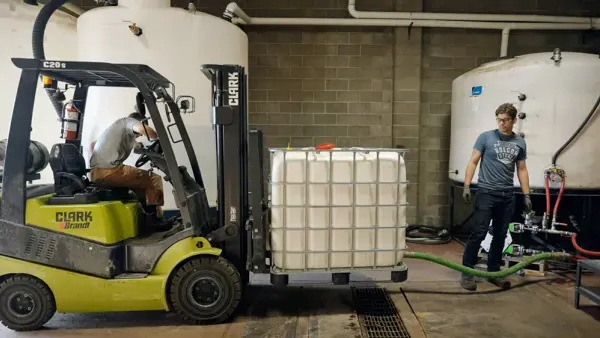According to a recent survey from Alibaba.com, two-thirds of U.S. business owners and supply chain decision-makers intend to increase their reliance on online global sourcing in 2024. While this shift can help businesses source more products at advantageous price points, a World Economic Forum report found that eight major global supply chains account for more than 50% of global emissions, including fashion, consumer goods, electronics and freight.
The impacts of these emissions have been notable, as major weather events have caused supply chain disruptions, such as lower water levels in the Panama Canal due to drought. If supply chains and sourcing practices do not adapt, further disruptions will arise. But how can the industry address these issues? Look no further than B2B e-commerce platforms, which can drive sustainability practices in the supply chain in a number of ways.
Encouraging transparency around sustainability practices and data
As the host for all information shared by both buyers and sellers, B2B e-commerce platforms can determine what information these businesses are able to share on their platforms. To encourage transparency about sustainable practices and results, B2B e-commerce platforms can provide specific prompts for suppliers to add any sustainability certifications and data to make it visible to businesses looking to identify a sourcing partner.
Today’s businesses are also looking for ways to make their supply chain more sustainable in response to increasing consumer demand for green products. This is evident in the 23% year-over-year increase in requests for quotation feature terms such as “sustainable” and “renewable” from buyers on Alibaba.com. By providing suppliers with a way to demonstrate their sustainable practices, B2B e-commerce platforms can help them market themselves as the right partner in sustainable business endeavors.
Simplifying the supplier search process for business decision-makers
With the shift toward sustainable products and sourcing practices, businesses are also becoming more selective about the suppliers they are evaluating. But with so many options to sort through, where can they start?
Businesses can use B2B e-commerce platforms to help simplify their sourcing and supply chain operations by leveraging features that help decision-makers sort through suppliers based on sustainability certifications and qualifiers. This can expedite the shift to sustainable sourcing by greatly reducing the amount of time that businesses spend sifting through the thousands of suppliers around the world.
Connecting suppliers and businesses directly to expedite shifts toward sustainable sourcing
For business owners not yet leveraging B2B e-commerce platforms, connecting with prospective sourcing partners to verify their services and enter an agreement can be time-consuming. This is especially true if there is a middleman involved. B2B e-commerce platforms can step in at this point in the process to directly connect businesses and suppliers, eliminating the middleman and expediting businesses’ shift to sustainable sourcing.
Once a direct line of communication is established between the two parties, the process of verifying sustainability certifications and qualifications, finalizing agreement details and beginning sourcing operations will pick up speed.
Helping businesses find their differentiator
As more and more businesses launch sustainable product lines, it is getting harder to stand out from the crowd. By encouraging transparency in reporting sustainable practices, simplifying the search process for business decision-makers and connecting those decision-makers directly with suppliers, B2B e-commerce platforms can help businesses separate themselves from others focused only on the product itself. As U.S. businesses increasingly turn to online global sourcing, B2B e-commerce platforms can help businesses shift to sustainable sourcing and drive the global shift toward greener supply chains.










